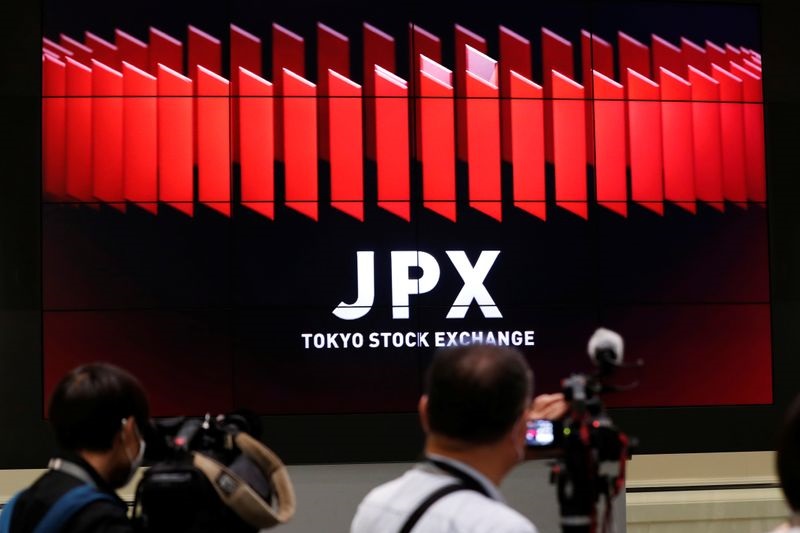By Ambar Warrick
Investing.com -- Japan’s benchmark stock index hit a six-month high on Thursday, largely outperforming its major peers this week despite growing fears of a hawkish Federal Reserve, as markets bet that the Bank of Japan will maintain its ultra-accommodative stance in the near-term.
The Nikkei 225 rose 0.5% to 28.602.50 - its highest level since mid-September. The index was also trading 2.4% higher so far this week, and marked a fifth consecutive session of gains.
In comparison, the S&P 500 and the Dow Jones Industrial Average fell 1.3% and 1.8%, respectively, this week. Europe’s STOXX 600 also shed 0.7% so far this week, while the UK’s FTSE 100 lost 0.2%.
Fears of a hawkish Fed rattled global stock markets this week, after Chair Jerome Powell warned that U.S. interest rates are likely to rise more than expected following higher inflation and job market readings.
Most Asian markets also saw heavy losses, with technology heavyweights bearing the brunt of selling as markets feared that rising interest rates will crimp regional liquidity conditions.
But with the BOJ widely expected to maintain rates at ultra-low levels, as well as continue its open market asset purchases, traders flocked to Japanese stocks on the prospect of safer returns.
Machine tool builder Okuma Corp. (TYO:6103), videogame maker Konami Corp. (TYO:9766), and packaging maker Toyo Seikan Group Holdings, Ltd. (TYO:5901) were the three top performers on the Nikkei in the past seven days, up between 5.5% and 12%.
The BOJ is set to maintain interest rates at record lows at the conclusion of a two-day meeting on Friday, and also maintain its yield curve control policy, under which the bank purchases exchange-traded funds and Japanese real estate investment trusts on the open market.
Softer-than-expected GDP data for the fourth quarter, which showed that Japanese economic growth has stagnated, also lent further credence to the BOJ’s dovish stance. The bank has argued that it needs to maintain ultra-low interest rates to support the Japanese economy.
While the bank is expected to eventually tighten policy under incoming Governor Kazuo Ueda, analysts expect the move to happen later, rather than sooner.
